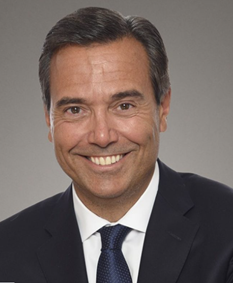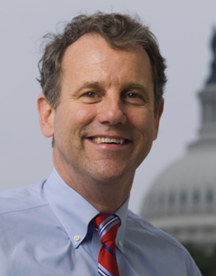
Was the downfall in March of Archegos Capital Management a case of financial-crisis dÉjÀ vu? It conjured up memories of past panics, notably the 1998 collapse of Long-Term Capital Management and, more disturbingly, the global crisis of 2008.
This time around, central bankers did not see fit to bail out the Archegos fund, as with LTCM. Nor was the entire financial system deemed to be in jeopardy, as in 2008 and as might have been repeated during the COVID-19 pandemic but for the reforms and stronger bank capital positions that resulted from the previous meltdown.
But Archegos, a New York-based family office whose troubles came to light when it failed to meet margin calls and caused some $10 billion of bank losses - nearly $5 billion and counting at Credit Suisse and lesser amounts at Nomura Holdings, Morgan Stanley, UBS Group and Mitsubishi UFJ Financial Group - exposed lingering weaknesses that regulators, financial institution boards and risk managers can't ignore.
Risk and financial market observers see both breakdowns in risk management and gaps in macroprudential policy: Archegos was founded in 2012 by Bill Hwang, a former protÉgÉ of Julian Robertson's at Tiger Management. As chronicled in the Wall Street Journal, because of insider trading charges at an Asian hedge fund, Hwang was barred from managing other people's money in the U.S. Instead, he formed a family office through which he could trade privately with little regulatory oversight.
Regulatory Avoidance
Family offices fall in the category of nonbank financial institutions operating in shadows that global policy bodies have been warning about.
“Looking across types of financial institutions,” said the International Monetary Fund's April Global Financial Stability Report, “it must be noted that the bulk of macroprudential policy tools apply to banks, with almost no tools directed specifically at nonbank financial institutions, which have become increasingly important actors in financial markets and pose additional challenges for financial stability.”
A July 2019 article on the CampdenFB website estimated that there were 7,300 single family offices worldwide, up 38% from 2017. Assets under management were estimated at $5.9 trillion and the wealth of the families behind them at $9.4 trillion. (By comparison, hedge fund assets in 2020 were $3.8 trillion.)
If nothing else, the Archegos debacle underscores - even for a highly profitable banking industry that has indisputably raised its risk management game over the last dozen years - the hazards of letting guards down.
Risk Management Basics
“At the center, it's a risk management issue,” observed James Lam, president of James Lam & Associates, who was chief risk officer at GE Capital Markets Services and Fidelity Investments in the 1990s and chaired the E*TRADE board risk committee until the firm was acquired by Morgan Stanley last year.
“Counterparty Risk Management 101 should have been happening,” contended Clifford Rossi, principal of Chesapeake Risk Advisors. Also professor-of-the-practice and executive-in-residence at the University of Maryland's Robert H. Smith School of Business, Rossi was Citigroup's Consumer Lending Division CRO during the 2008 financial crisis.
Banks should have been able to answer the basic questions, he continued: “Who are your counterparties, and how do you ensure you have appropriately assessed their risks?”
It begs the question of whether they were turning a blind eye to whom they were getting in bed with.

Beyond the basics of counterparty risk assessment, another problem with Archegos appears to have been that the banks didn't know what they didn't know: that Archegos had struck total return swap deals with numerous prime brokers for the very same small number of stocks, including ViacomCBS; amassed sizable positions in them without having to disclose this, because of the family office status; and fell victim to excessive leverage.
According to the Wall Street Journal, Archegos was “regularly putting up $15 of collateral to borrow $85.”
That alone should have been a red flag, Rossi argued. He believes that anyone “borrowing from a regulated financial institution should have some oversight.”
“Lack of Visibility”
“The fundamental issue with these events is the lack of visibility into effective leverage and economic risk exposures,” Lam maintained. “For example, it has been reported that Credit Suisse didn't have dynamic margining to support their prime brokerage business with Archegos.”
“Continuous risk management is essential for businesses with volatile risk profiles,” Lam added. “Without that visibility, it would be impossible to monitor risk exposures and concentrations against risk appetite and mitigate or exit unacceptable risks in a timely manner.”
On top of Archegos losses expected to climb past $5 billion, Credit Suisse, as an April 30 New York Times article pointed out, had to raise $2 billion in fresh capital, canceled plans to buy back shares, and cut bonuses for the executive board for this year and last.
Heads also rolled, including CRO Lara Warner, investment banking chief Brian Chin and board risk chair Andreas Gottschling. (Credit Suisse was also reeling from its involvement with Greensill Capital, which filed for insolvency in early March.)
As quoted in the New York Times, Credit Suisse chairman AntÓnio Horta-OsÓrio made clear his feelings about risk management: “I firmly believe that any banker should be at heart a risk manager.”
Defending Past Performance
Yet a former Credit Suisse chief executive officer, Brady Dougan, in a Bloomberg Television interview, defended the bank for its past successes and “a lot of good DNA around risk management.”
Another seemingly tone-deaf comment came from Morgan Stanley CEO James Gorman. Even after unloading $5 billion of stock just before the fire sale, the firm still lost nearly $1 billion from liquidating Archegos holdings. According to CNBC, Gorman referred to $267 million of that first-quarter write-down as “money well spent.” He went on to explain that “we made a management decision to completely de-risk the remaining smaller long and short positions,” and described it as “necessary.”
Other big banking names apparently wanted in with Archegos, including JPMorgan Chase and Citigroup, according to International Financing Review. But in those cases, while risk and compliance departments were conducting due diligence, the family office fell apart, resulting in a “near miss.”
As for Archegos itself, Reuters reported on March 29 a statement that “all plans are being discussed as Mr. Hwang and the team determine the best path forward.”

Regulators' Responses
Asked about Archegos in an April 11 CBS 60 Minutes interview, Federal Reserve chairman Jerome Powell said, “This is an event that we're monitoring very carefully and working with regulators here and around the world to understand carefully.” He called it “concerning” that a single client “could result in such substantial losses to these large firms in a business that is generally thought to present relatively well understood risks . . . What we're trying to do is make sure that the banks understand the risks that they're running and have systems in place to manage them. This would appear to be a significant shortfall - a failure on that front.”
In a May 6 statement accompanying the release of the central bank's Financial Stability Report, Fed governor Lael Brainard said the Archegos failure “highlights the potential for nonbank financial institutions such as hedge funds and other leveraged investors to generate large losses in the financial system.
“The Archegos event illustrates the limited visibility into hedge fund exposures,” Brainard went on, “and serves as a reminder that available measures of hedge fund leverage may not be capturing important risks. The potential for material distress at hedge funds to affect broader financial conditions underscores the importance of more granular, higher-frequency disclosures.”
Acting Comptroller of the Currency Michael J. Hsu, whose agency supervises most of the biggest U.S. banks, expressed concern in May 19 congressional testimony that “as the economy recovers and returns to normal, overconfidence leading to complacency is a risk. Indeed, the $10 billion in cumulative losses related to Archegos, a nonbank financial company, reminds us of the importance of sound risk management.” With many large banks in a growth and risk-on mode, he cautioned, “When done in an unsafe, unsound, and unfair manner, however, excessive growth can cause significant damage. One of our most important tasks as bank supervisors is to identify, assess, and act before that is the case.”

There could also be political fallout. Senate Banking Committee chair Sherrod Brown, Democrat of Ohio, said in a late March statement to CNBC, “Once again, investment banks put profits first and enabled risky derivatives trading that resulted in billions of dollars in losses. We must make sure our financial watchdogs work together to protect the financial system and our economy. I expect the SEC and other regulators to take a closer look.”
Brown's office issued an April 8 update, saying the senator had sent letters to Credit Suisse, Nomura Holding America, Goldman Sachs and Morgan Stanley asking pointed questions about their relationships with Archegos and risk management protocols.
Feedback Loops
What needs to change for risk management to be able to meet these and other ever-evolving challenges in real time?
“I believe the most important missing link in risk management today is the lack of objective feedback loops that will help monitor and minimize unexpected performance variances,” Lam explained. “For example, if we track unexpected earnings variances - both positive and negative - on an ongoing basis, we can fix the underlying problems before they lead to a big earnings surprise.”
“With effective feedback loops for risk management, everything else, from risk culture to systems, should fall in place,” he noted. “If companies can implement quantitative feedback loops, they can identify and fix small failures instead of cleaning house after big ones.”
Risk and banking experts maintain it may be too soon to tell whether what happened at Archegos was an isolated incident, or perhaps the tip of a shadow banking iceberg.
As TS Lombard head of strategy Andrea Cicione told the Financial Times, “There is never just one cockroach.”
What's clear is that the Archegos failure is a wake-up call - and far more than just a family affair.
L.A. Winokur is a veteran business journalist based in the San Francisco Bay Area.